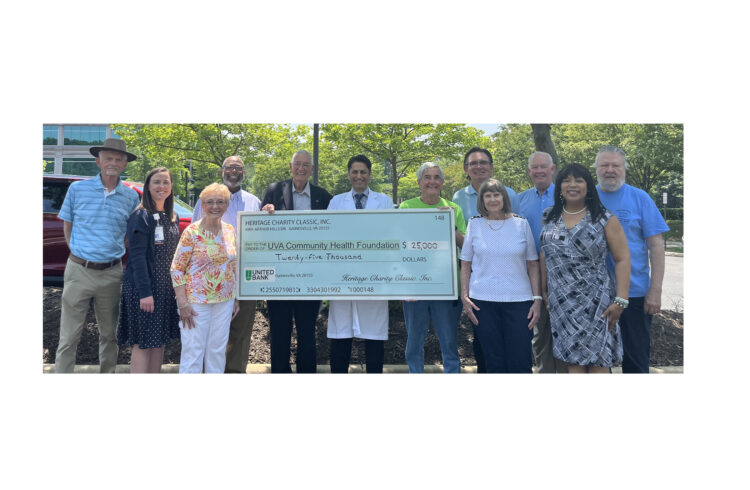
Researcher Kathleen A. McManus, MD, has looked at the plans' role in the effort to end the HIV epidemic.
The South, the U.S. region with the most HIV infections each year, also has the greatest barriers to obtaining drugs that can prevent the disease for people who rely on Affordable Care Act insurance plans, research reveals.
University of Virginia School of Medicine researchers have found that 38% of Qualified Health Plans offered by Southern states require recipients to seek “prior authorization” for the medications. That rate is far higher than in other regions, which range from 13% in the Midwest down to only 3% in the Northeast.
Outlining their findings in a paper in the journal JAMA Network Open, the researchers said that “discriminatory benefit design” that seeks to prevent people from accessing costly medical care could be a “systemic barrier” contributing to the spread of HIV in the South.
“Qualified Health Plans using prior authorization for HIV pre-exposure prophylaxis at higher rates in the South is a systemic barrier,” said researcher Kathleen McManus, MD, of UVA’s Division of Infectious Diseases and International Health. “Prior authorizations have been cited by clinicians as being one of the biggest barriers for PrEP [pre-exposure prophylaxis] uptake. For other medications, prior authorizations have been shown to decrease appropriate medication use. If someone lives in the South, they are more likely to face this barrier than someone who lives in the Northeast. This is problem because more than half of the United States’ annual HIV diagnoses are in the South. The South is the region where we need increased PrEP uptake in order to curb new HIV infections.”
“This policy is an example of structural racism,” she said. “More than half of African-Americans live in the South, where they are more likely to face this barrier, and the lifetime risk of acquiring HIV for African-American men is one in 20, compared to one in 132 for white men. The lifetime risk of acquiring HIV for African-American women is one in 48, compared to one in 880 for white women.”
Qualified Health Plans and HIV
Qualified Health Plans were established by the Affordable Care Act to extend healthcare access to people who cannot afford insurance. More than 11 million Americans now use Qualified Health Plans for their healthcare needs. But there has been criticism of how some of the plans handle HIV medications and care, the researchers state. That prompted the team of researchers to investigate whether there are disparities in the plans’ requirements for drugs to prevent HIV infection.
“Instances of potential QHP discriminatory benefit design for HIV treatment (e.g., placing all or most antiretroviral medications for HIV treatment on the highest specialty tier), has prompted concern that there may be similar plan design challenges impacting access to PrEP,” the researchers write in a new scientific paper outlining their findings.
Their research bore out just such disparities. After reviewing more than 16,800 Qualified Health Plans, the researchers determined that, overall, 18.9% required authorization for PrEP. But that figure was skewed by the high rate in the South: 38% of QHPs there required prior authorization, compared with 13% in the Midwest, 6% in the West and 3% in the Northeast.
When insurance plans require prior authorization, doctors must justify a drug as medically necessary and may have to document that the patient meets specific criteria. Requiring authorization can have significant consequences, the researchers state: “In a recent survey, 92% of physicians reported that prior authorizations lead to delays in medically necessary therapy, and 78% of physicians reported that a prior authorization at least sometimes leads to patients abandoning a recommended medication.”
QHPs will be required to offer PrEP without cost sharing starting in January. That raised concern among advocates that QHPs may try to limit access by using methods such as prior-authorization requirements. The new research, however, shows that such barriers are already in place, the authors say.
Improving access to HIV prevention may require legal interventions, the researchers state: “Federal or state-level health policy laws may be necessary to remove this system-level barrier to Ending the HIV Epidemic in the United States.”
“State regulators review insurance companies within their state to assess for outliers in their use of prior authorization, but within-state oversight will miss regional-level or state-level outliers where PrEP access might be worse,” McManus said. “State insurance regulators or the Health and Human Services Office of Civil Rights should examine why national companies are putting additional barriers in place for PrEP in the South, and whether this constitutes discriminatory plan design.”
She added: “Federal or state-level health policy laws may be necessary to remove this system-level barrier to Ending the HIV Epidemic in the United States.”
About the Research
The research team consisted of McManus, Samuel Powers, Amy Killelea of the National Alliance of State & Territorial AIDS Directors, Sebastian Tello-Trillo and Elizabeth Rogawski McQuade.
The research was supported by the National Institutes of Health’s National Institute of Allergy and Infectious Diseases, grant number K08AI136644. McManus disclosed that she has received research funding from Gilead Sciences Inc. and owns stock in the company.
To keep up with the latest medical research news from UVA, subscribe to the Making of Medicine blog.



